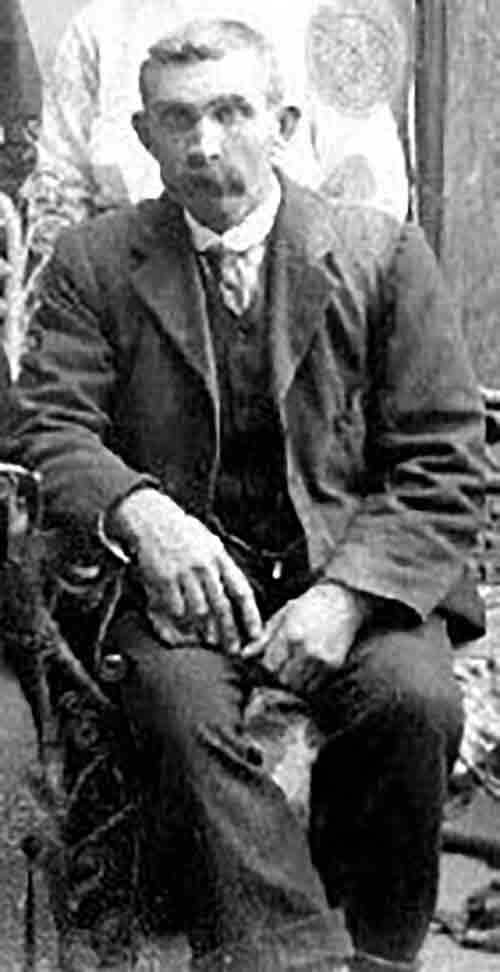14 June 2024
New Non-Commemoration cases are accepted for Commemoration

Over the course of 2023 and early 2024, our Commemorations Team have completed reviews and received adjudications for Non-Commemoration cases. Every individual accepted as a Commonwealth war casualty is added onto the Commission’s Casualty Database.
The narratives below detail some of our latest commemorations, including two Merchant Navy casualties who were killed in the aftermath of D-Day.
Chief Officer William James Wiliamson and Assistant Cook James Leitch Scott
Chief Officer William James Williamson and Assistant Cook James Leitch Scott signed on for a voyage with M/V Chant 69, a vessel taken on for Special Service from 25th May 1944, in preparation for D-Day.
Following the Normandy coast offensive on 6th June, the vessel was being used to transport water for soldiers between Sword and Gold beach, when it capsized off Juno beach on 14th June. Williamson and Scott were both lost at sea, being recorded as Missing Presumed Drowned. Our teams will carry out further investigation to establish the form and point of commemoration, so that eighty years on, they are remembered in perpetuity as Merchant Navy casualties.
305161 Serjeant Frederick Smith
 Serjeant Smith was a pre-First World War soldier in the West Yorkshire Regiment (Prince of Wales’s Own), who served in France from January 1917. A month later, he received a severe injury in action on the Somme. His mother was notified that her son was seriously ill and being treated at the 4th London General Hospital, after receiving a major shrapnel wound to the frontal bone of his forehead and damage to his brain. Discharged medically unfit from the British Army in June that same year, he received a Silver War Badge for his service.
Serjeant Smith was a pre-First World War soldier in the West Yorkshire Regiment (Prince of Wales’s Own), who served in France from January 1917. A month later, he received a severe injury in action on the Somme. His mother was notified that her son was seriously ill and being treated at the 4th London General Hospital, after receiving a major shrapnel wound to the frontal bone of his forehead and damage to his brain. Discharged medically unfit from the British Army in June that same year, he received a Silver War Badge for his service.
The after-effects of his injury were recorded as contributing factors to his death, which occurred in January 1920. A report in the Yorkshire Evening Post noted the severity of his war wounds:
Page 7 of The Yorkshire Evening Post, 15 January 1920. Image © National World Publishing Ltd, sourced via Findmypast.
CWGC staff are now investigating to confirm Sjt Smith’s burial in Leeds (Beckett Street) Cemetery in West Yorkshire.
Civilian Elizabeth B. Sinclair
Married to Private Edward William Sinclair in 1940, Elizabeth Sinclair worked overseas at the Alexandra Hospital during the Fall of Singapore. Staying behind after most had been evacuated, numerous staff and patients were killed inside the hospital between the 14th and 15th February 1942, including Elizabeth and Edward.
Elizabeth was accepted for commemoration as Civilian War Dead, after archival documents placed her at the hospital and survivor accounts recalling that she was not seen again. Whilst her husband is commemorated on the Singapore Memorial, Elizabeth’s name will now be added to the Civilian War Dead Roll of Honour in Westminster Abbey.
58649 Pte John Poole
Private John Frederick Victor Poole served with the Machine Gun Corps during the First World War. Enlisting in February 1916 at the age of 18, he was posted to France with the British Expeditionary Force the following year.
Private Poole was taken Prisoner of War at Bullecourt in March 1918. He was held captive for nine months and, during this time, contracted tuberculosis. Though repatriated to England on Boxing Day in 1918, he did not recover from this illness and was discharged from service six months later.
Private Poole was awarded a disability pension and received the Silver War Badge, which acknowledged that this disability was attributable to his war service. He sadly died of tuberculosis at the Addenbrookes Hospital, Cambridge, on 25th February 1920, which falls within the Commission’s qualifying date period for commemoration.
Our teams will now carry out a 'Grave Found' investigation to ascertain where this casualty is buried.
Civilian Alfred Robert Rackett
 Mr Alfred Rackett resided on the Isle of Wight. On 7th April 1943, the market town of Newport was attacked by German fighter bombers, who were targeting the island’s manufacturing hubs. Twenty-one people were killed in this raid, with a further two hundred injured. A bomb that exploded in a timber yard in Trafalgar Road killed three and severely injured several others, including Alfred. He died from the injuries he sustained some five months later.
Mr Alfred Rackett resided on the Isle of Wight. On 7th April 1943, the market town of Newport was attacked by German fighter bombers, who were targeting the island’s manufacturing hubs. Twenty-one people were killed in this raid, with a further two hundred injured. A bomb that exploded in a timber yard in Trafalgar Road killed three and severely injured several others, including Alfred. He died from the injuries he sustained some five months later.
As well as Elizabeth Sinclair, Alfred’s name will now be added to the Civilian War Dead Roll of Honour – alongside the other victims of the bombing raid already commemorated by the Commission.
Alfred Rackett (reproduced courtesy of Newport Town Clerk).

